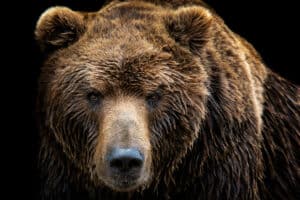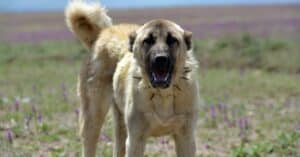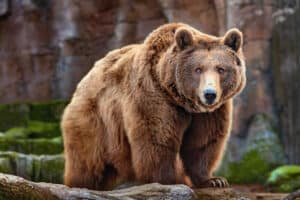Colorado has some of the most extreme terrains in the United States, so it only makes sense that they have some of the most unique animals as well! Today, we will look for some record-breaking animals in Colorado, specifically black bears.
Colorado is home to many apex predators, and the black bear is most definitely among them! Let’s get started and discover the largest black bear ever caught in Colorado!
The Largest Black Bear Ever Caught (Live) in Colorado
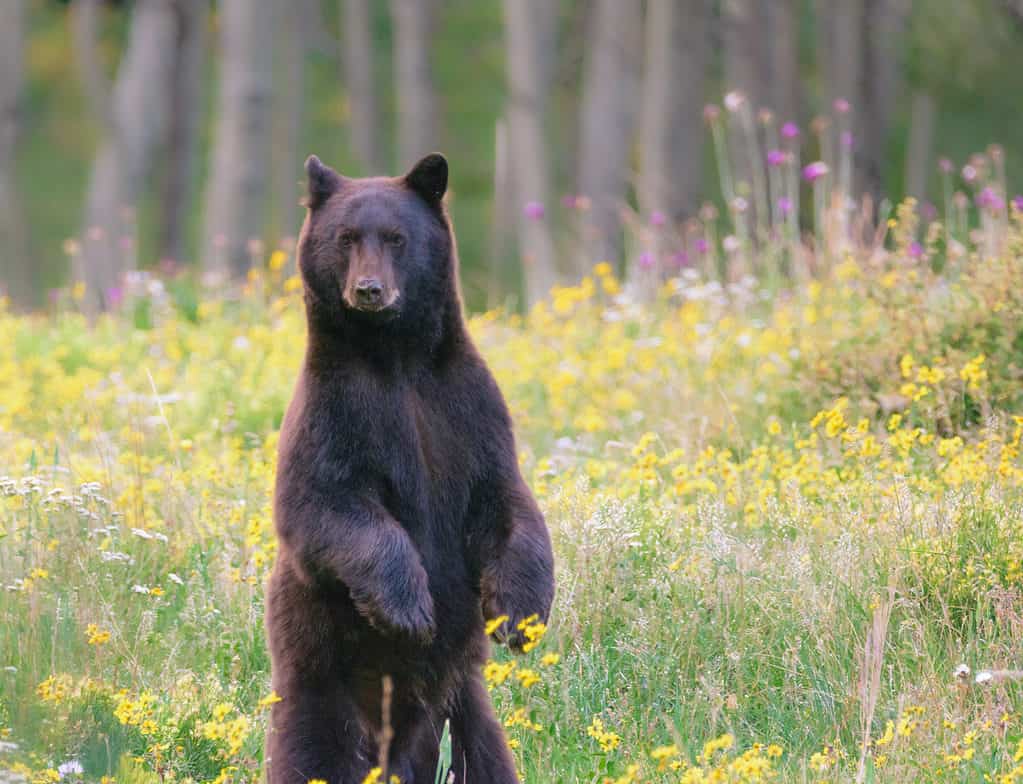
One of the largest black bears ever caught in Colorado weighed over 400 lbs.
©Constance Mahoney/Shutterstock.com
There are a few ways to measure this particular record, specifically breaking it into the largest bear caught and the largest trophy record, which is a reference to the hunting (and usually the killing) of the animal. Let’s start with just the largest black bear ever seen/caught in the state that wasn’t killed.
One of the largest black bears ever caught in the state of Colorado was found in Durango, Colorado, in October 2022 and weighed over 400 lbs.
The massive bear was caught but required five wildlife officers and multiple tranquilizer darts. The bear needed to be relocated to a more suitable habitat after it was discovered living under the porch of a local homeowner! According to Colorado’s Department of Natural Resources, the bear may have been considering using the deck as a winter den due to the good cover it provided from the weather. Even more, the nearby apple trees provided the perfect spot to eat, sleep, and repeat! All of the wildlife officers who helped at the scene described the chunky boy as the largest bear they had ever seen in the town.
Thankfully, they could relocate the bear to keep it in a more suitable and safer place. Without all those apples, the bear may have experienced a bit of weight loss!
The Black Bear Hunting Record in Colorado
Although the 400-lb bear above was large, it wasn’t the largest ever caught in the state. That record is held by Richard Kendall, who shot his trophy in the Wilson Creek area of Moffat County, Colorado. Incredibly, the bear was a 703-lb male in a nearby cave.
The story Kendall describes is rather heart-pounding since he had to literally enter the cave with the bear to shoot it. Although black bears are rarely aggressive, an injured bear trapped in a cave will kill a human without much hesitation or even effort.
The record was confirmed by the Boone and Crockett Club, the standard trophy club that sets the rules for most trophies taken across big game here in the United States. Before Kendall, the state record was 22 and 9/16 inches (the skull measurement). Kendall’s skull measured 22 and 5/8 inches, barely edging it out. Still, the record was a bit debatable since a drying process needs to happen to ensure continuity across the trophy process.
Outside of Colorado, the largest black bear on record measures 23 and 10/16 inches, about an inch larger than the Colorado state records.
Black Bears in Colorado
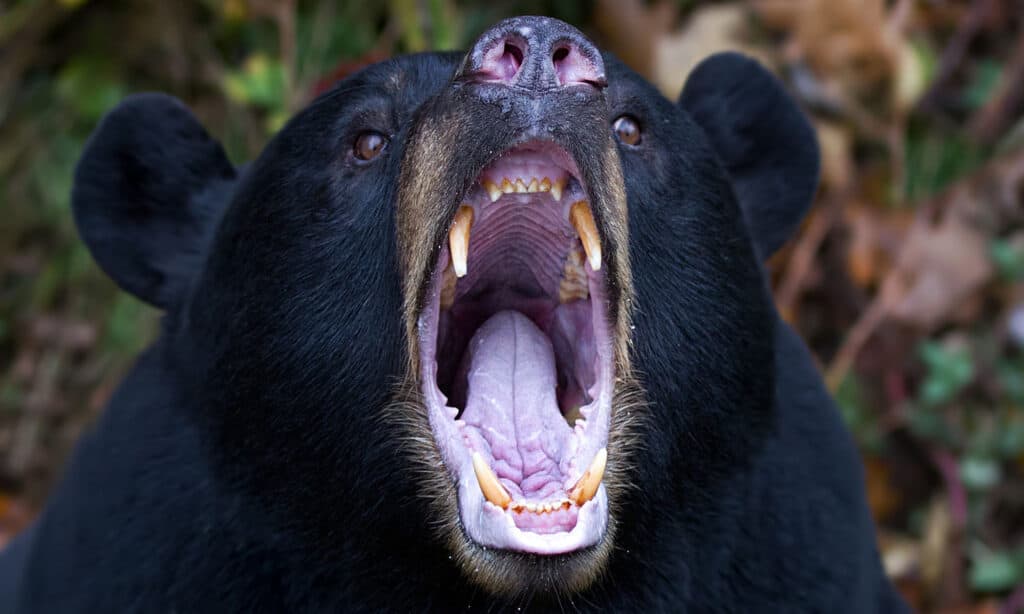
Black bears can become a danger if accustomed to human food.
©Jim Cumming/Shutterstock.com
Habitat and Distribution
Black bears can be found throughout Colorado, with a particularly high population in the western and southern parts of the state. They can inhabit various environments, including forests, mountains, and grasslands. The largest black bear populations can be found in Gambel’s oak and Aspen, particularly because of the open areas and food sources, chokecherry and serviceberry.
Diets
Black bears are omnivorous, meaning they can feed on a wide range of plant and animal matter. In Colorado, their diet can include berries, fruits, nuts, insects, and small mammals. They may also occasionally scavenge for food, such as human trash, making bearproofing an essential element in many places throughout the state.
Danger
While black bears are generally not aggressive towards humans, they can become dangerous if accustomed to human food and begin associating humans with a food source. It’s important to store trash and food properly and to avoid attracting bears with food or other attractants. As the saying goes: A fed bear is a dead bear. Humans often aren’t respectful towards the reality that black bears are large predators, and problems ensue.
Conservation
Black bears are protected in Colorado, and their populations are managed by the Colorado Parks and Wildlife Department. Efforts to conserve black bears in the state include habitat protection and management, research, and education to reduce human-bear conflicts.
Up Next:
- The Largest Black Bear in History
- Discover The Largest Black Bear Ever Caught in Maine
- Black Bear Population by State
The photo featured at the top of this post is © Holly Kuchera/Shutterstock.com
Thank you for reading! Have some feedback for us? Contact the AZ Animals editorial team.



